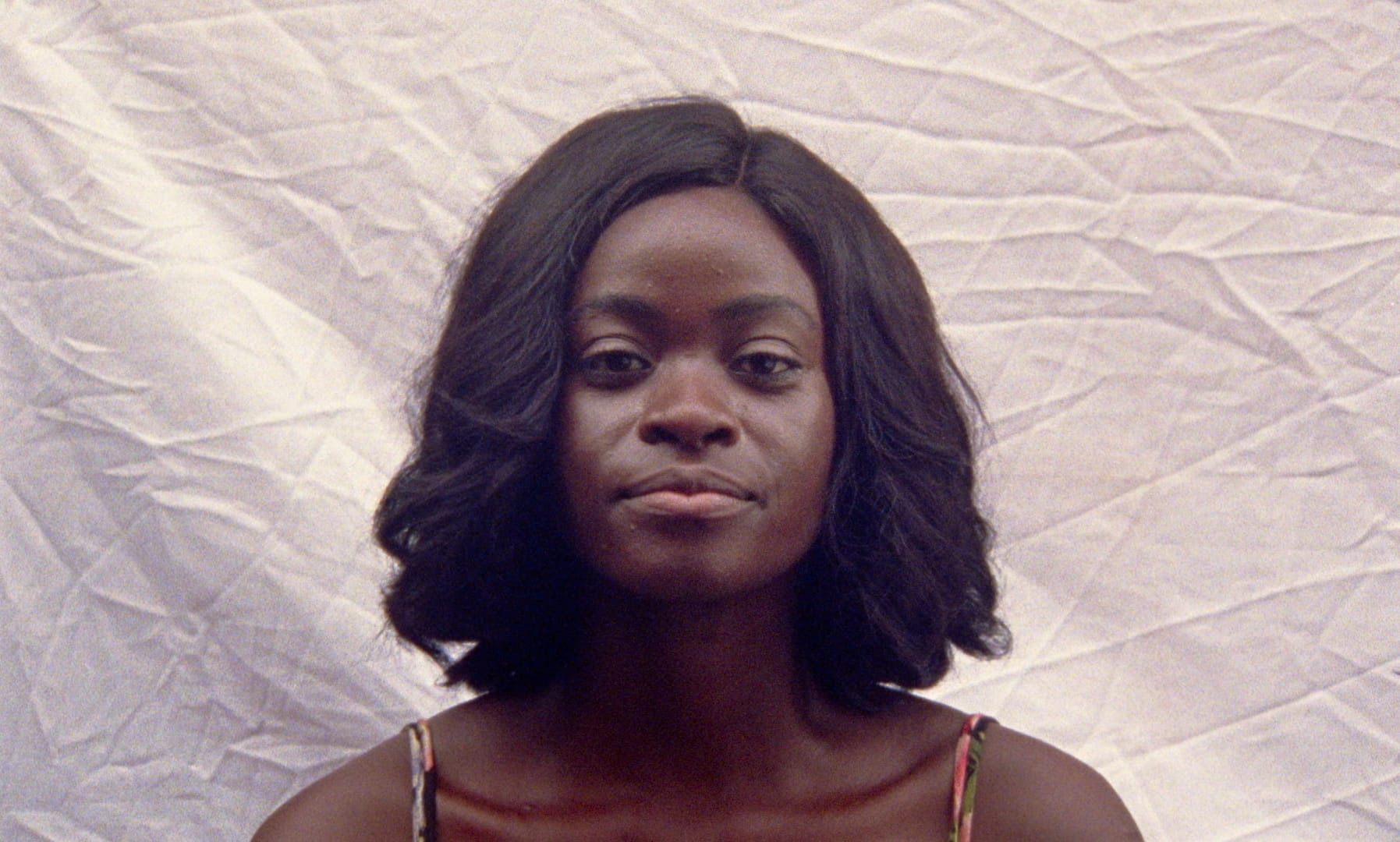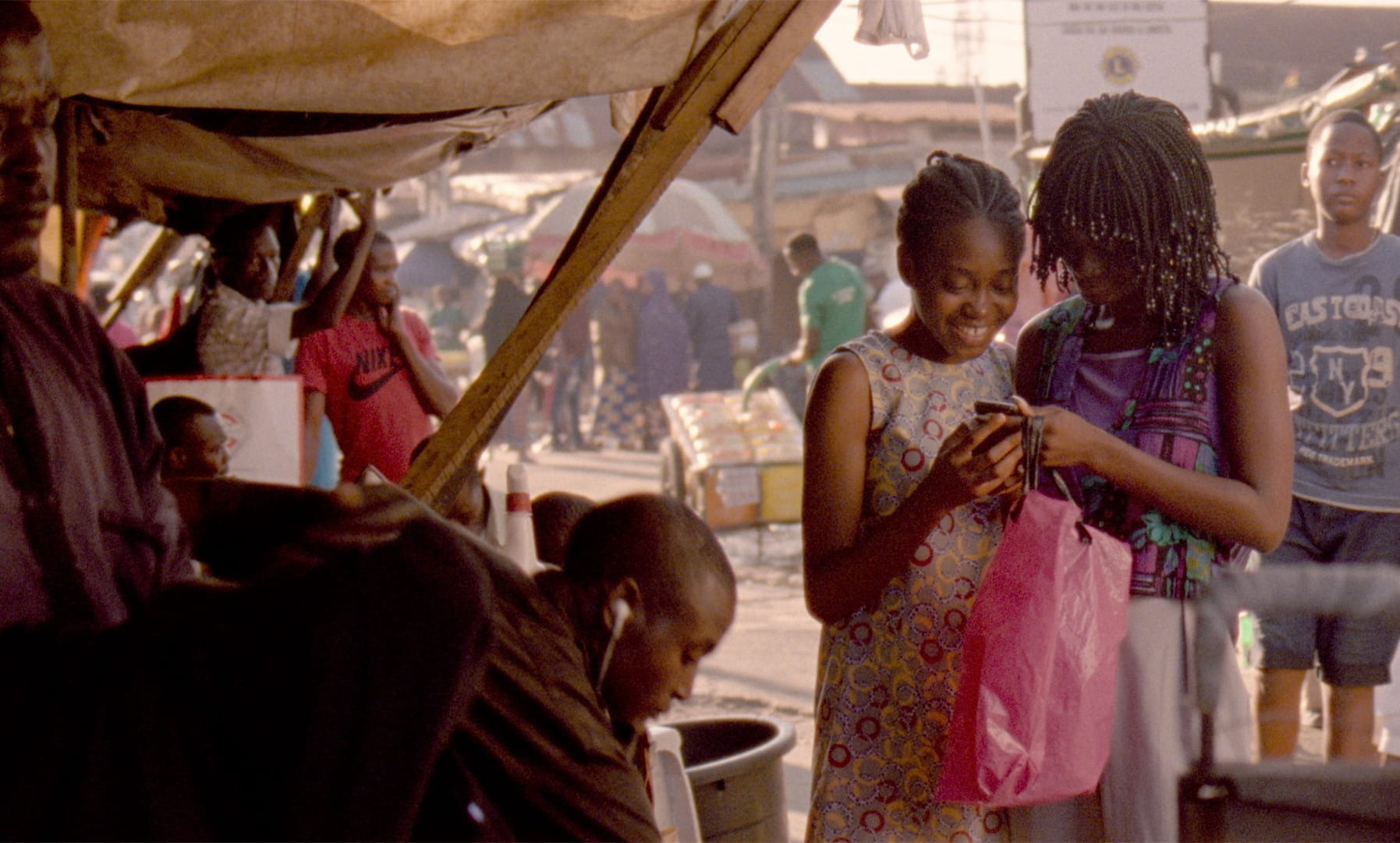The film exists within the tradition of African cinema, to which cultural critic and filmmaker Manthia Diawara ascribes two central themes, “social realism and colonial confrontation,” as well as within the larger tradition of “world cinema” that Lúcia Nagib has described as “cinema of the world” that “has no center.” The Esiris have noted that their film is heavily influenced by the New Taiwan Cinema, which is evident in the confident austerity of the camera as we journey through Lagos, shown in a way that balances social-realist and modernist aesthetics and echoes Edward Yang’s Taipei Story. Eyimofe may not seem to have much in common with the gaudy commercial movies usually associated with Nollywood, as Nigeria’s film industry is popularly known, with their accelerated and complex plotlines and, most often, characters that are either good or evil. But in fact, the film must be seen as part of both the Nigerian film industry (which extends beyond this monolithic perception) and world cinema. The Esiris are committed to realism and novelistic detail, and they masterfully transpose plotlines, people, and places that could very well exist in a commercial Nollywood movie into a style of filmmaking whose deliberate pace demands that we witness the various currencies being exchanged in the world of the film—discern their logic, feel what they cost to earn and to spend.
Money is Eyimofe’s true villain. Within twenty-four hours of receiving a
passport (with the name Sanchez, signaling to viewers that Mofe’s
papers are legal-adjacent) and the unexpected deaths of his sister,
Precious, and young nephews due to “something to do with the generator,”
Mofe must spend. He must pay to keep their bodies at the hospital while
he looks for more money to arrange their release. He must pay for their
funerals, without the help of his estranged father (the late Sadiq
Daba, compellingly infuriating). He must pay a lawyer to retrieve funds
from Precious’s bank account that she had planned to give him for his
travel documents. Throughout all this, Mofe shows patience. “It’s okay,”
he responds to the nurse who informs him indifferently that the bodies
of his family will be disposed of if he doesn’t pay. “It’s not okay.
It’s not right,” his friend Abu insists.
“The Esiris’ camera is quite literally interested in the big picture, in asking: What means are truly available to Mofe and Rosa to attain the currency of self-determination?”
Wherever Mofe turns, he can’t seem to escape the fact of money, its unjust logic, the way its exchange seems to be urgent only when he’s the one paying. At the printing factory where he works—which primarily prints campaign materials promising change—the faulty junction box shocks him while he attempts to perform a repair (and we can see a prominent burn on his hand already, likely also a work injury). The new equipment “will get here when it gets here,” his supervisor insists with maddening detachment.
Eyimofe avoids overselling Mofe’s tragedy through a balancing act that involves a confidently restrained camera and tender writing. After Mofe returns from the hospital, he is surrounded in prayer in the corridor of his apartment building by neighbors and friends. The camera frames him from enough distance that we can see the impact of these deaths beyond him—the community is grieving too. As the film progresses, the Esiri brothers reveal Mofe’s most vulnerable moments with deliberate care. When he calls his father to inform him of Precious’s and his nephews’ deaths, the camera oscillates with him inside his flat—“Precious is dead,” he stammers haltingly. The camera profiles him in close-up, its perspective laterally shouldering him as he ends the call and releases a tight sob. Before an orange and brown curtain blocking the Lagos sun, the camera stays still and captures Mofe’s face shrouded in shadow, enacting a protectiveness over his grief.
And why might Mofe need protection? Without directly referencing the way migration stories are typically framed visually—in Global South exterior environments, in vast and ominous waters, in overcrowded small boats surrounded by violent waves, in overpopulated detention centers, or worse, in the caskets of those who don’t survive the journey—by staying inside with Mofe, the Esiris shield him. They let us know that we have been invited into Mofe’s home and remind us that this invitation is a privilege. Toward the close of Mofe’s chapter, he is shrouded again, as hues of blue tint the mosquito net draped over him, contemplating in bed—in a still frame that oozes melancholy. This color motif is sustained with Mofe’s last words, as he leans over his balcony, below which thick masses of green grass sprout from the ground. He is forced to relinquish his pride (his father has successfully challenged Mofe’s claims to his sister’s accounts after refusing to help pay for the funeral), a form of currency that has no value. “Is Papa there?” he asks with resignation.








